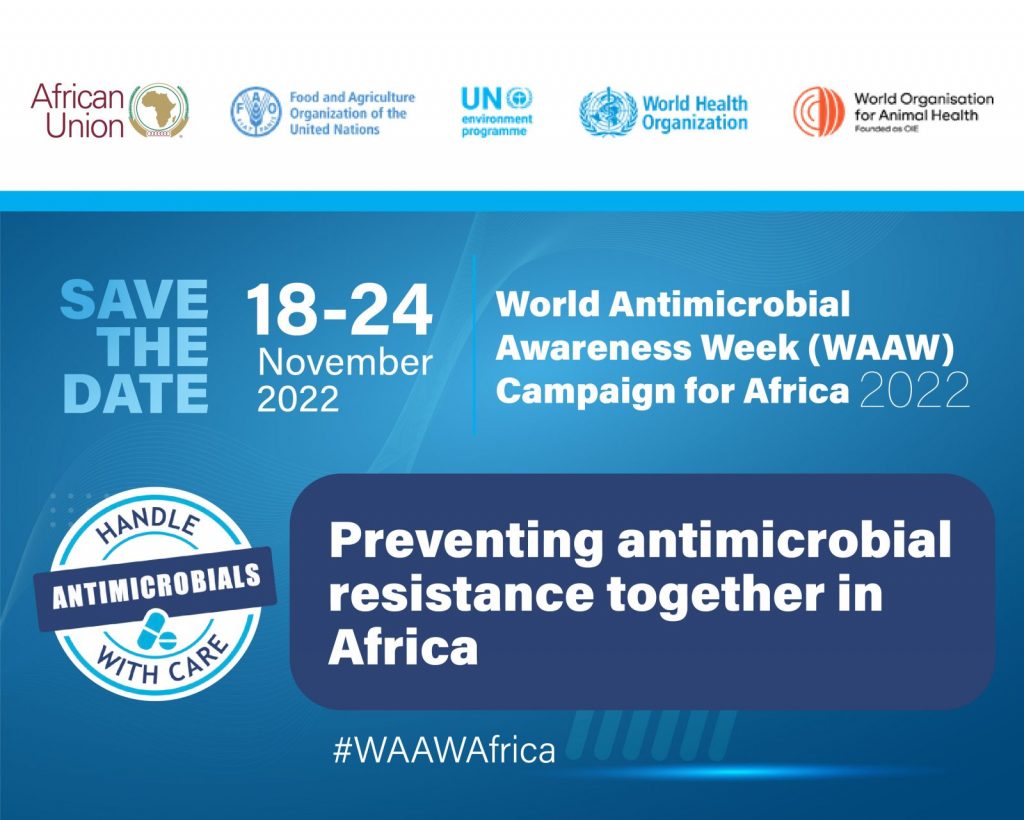Global theme: ‘Preventing antimicrobial resistance together’
Background
Antimicrobial agents1, including antibiotics, have saved millions of lives by substantially reducing the burden of diseases in people, animals, and plants and hence improving quality of life, contributing to better food security and safety, and aiding to increased life expectancy.
However, the emergence and spread of antimicrobial resistance (AMR) in several microorganisms is reversing these benefits and further complicating the management of many infectious diseases. AMR is a major threat to human development and the fight against infectious diseases. It also endangers animal health and welfare and food production as well as affect the health and productivity of ecosystems. While human and animal health dimensions of the AMR crisis have received considerable attention, the environmental dimension is not yet at par. In the recently concluded United Nations Environment Assembly (UNEA 5), AMR was featured in the resolution on Biodiversity and Health which highlighted the spread of antimicrobial resistance in the environment is increased by pollution from human activities and affecting both human and animal health. This further emphasizes the need to address the challenges posed by AMR using a One-Health approach. The global theme for the 4th World Antimicrobial Awareness Week (WAAW4) “Preventing antimicrobial resistance together” is therefore in keeping with the
objective of addressing AMR in a coordinated, multi-stakeholder, multidisciplinary and inclusive manner.
The factors driving the emergence of AMR are complex and multifactorial therefore requiring the use of a multidisciplinary approach to address them. Accordingly, AMR requires a collective and practical response. To mitigate AMR risks with a holistic approach, the Food and Agriculture Organization of the United Nations (FAO), World Organization for Animal Health (OIE), and World Health Organization (WHO) and the United Nations Environment Programme (UNEP) and Africa Union Task Force on AMR are working closely together at all levels to achieve this.
The One-Health approach is the holistic approach that aims to sustainably balance and optimize the health of people, animals, ecosystems, and the wider environment. It mobilizes multiple sectors, disciplines, and communities to work together to foster well-being and tackle threats to health and ecosystems. Taking a ‘One Health’ approach has many benefits, such as complementarity for amplified impact, cost savings incurred by addressing multiple threats simultaneously etc.
Under the auspices of the Africa quadripartite members (FAO, OIE, WHO, UNEP), and Africa Union ((Africa Centre for Disease Control and Prevention (Africa CDC), and the African Union Inter-African Bureau for Animal Resources (AU-IBAR)), the 4th continental joint WAAW Africa campaign will be celebrated from 18 to 24 November 2022 on the theme “Preventing Antimicrobial Resistance Together in Africa”
Overview of the weeks’ activities
The 2022 WAAW Africa campaign will be organized in a hybrid mode with focus on the
following topics:
- Adopting a One Health approach and multi-sectoral coordination mechanisms for AMR prevention and mitigation
- Optimizing AMR Implementation: Successful Initiatives on AMR control
- Understanding the environmental dimensions of AMR
- AMR in aquaculture a concern for food safety, the environment and aquatic animal health
- Becoming AMR advocates: Why voices of young Africans are needed.

